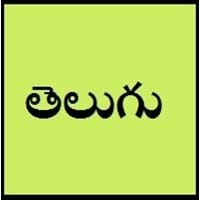Xhosa vs Telugu
- Xhosa has 15 click sounds, borrowed from the khoi-khoi and san languages of the South Africa.
- The same sequence of consonants and vowels can have different meaning when said with different tones, so Xhosa is tonal.
- Telugu is the only language in the Eastern world that has every single word that ends with a vowel sound. Telugu language is called "Italian of the East".
- Telugu is one of the oldest language in India which is 2,400 years old.
Xhosa and Telugu Language History
Comparison of Xhosa vs Telugu language history gives us differences between origin of Xhosa and Telugu language. History of Xhosa language states that this language originated in 16th Century whereas history of Telugu language states that this language originated in c. 575. Family of the language also forms a part of history of that language. More on language families of these languages can be found out on Xhosa and Telugu Language History.
Xhosa and Telugu Greetings
People around the world use different languages to interact with each other. Even if we cannot communicate fluently in any language, it will always be beneficial to know about some of the common greetings or phrases from that language. This is where Xhosa and Telugu greetings helps you to understand basic phrases in Xhosa and Telugu language. Xhosa word for "Hello" is Molo or Telugu word for "Thank You" is ధన్యవాదాలు (Dhan'yavādālu). Find more of such common Xhosa Greetings and Telugu Greetings. These greetings will help you to be more confident when conversing with natives that speak these languages.
Xhosa vs Telugu Difficulty
The Xhosa vs Telugu difficulty level basically depends on the number of Xhosa Alphabets and Telugu Alphabets. Also the number of vowels and consonants in the language plays an important role in deciding the difficulty level of that language. The important points to be considered when we compare Xhosa and Telugu are the origin, speaking countries, language family, different greetings, speaking population of these languages. Want to know in Xhosa and Telugu, which language is harder to learn? Time required to learn Xhosa is 44 weeks while to learn Telugu time required is 44 weeks.





